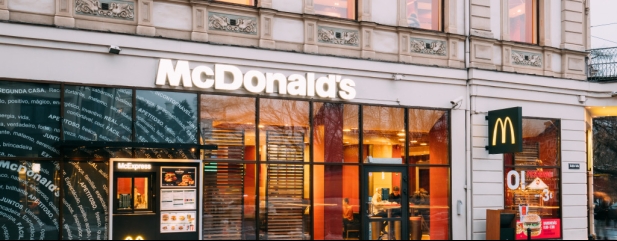McDonald’s (MCD:NYSE) $245.60
Loss to date: 3%
Fast food chain McDonald’s (MCD:NYSE) shares are trading slightly below our original buying price, but the fundamentals are as strong as ever.
Shares highlighted the reliability of the company’s dividend as a key attraction saying’ ‘in investment markets stressed by a biting cost-of-living crunch, there are few investments that provide investors with the sanctuary of reliability and safety offered by McDonald’s.’
WHAT’S HAPPENED SINCE WE SAID TO BUY?
It was therefore reassuring when the company announced (14 October) an inflation-busting 10% increase in its quarterly dividend to $1.52 per share.
With the latest US consumer price inflation surprising on the upside yet again to 8.1%, the dividend hike was greatly appreciated.
The quarterly payment is equivalent to an annual payout of $6.08 per share, which implies a yield of 2.5% at the current share price.
The payout is in line with McDonald’s capital allocation strategy of reinvesting in the business to drive profitable growth and paying back surplus capital to shareholders via dividends and share buybacks.
The company has increased its annual dividend every year since initiating its first payout in 1976, testament to the cash-generative nature of its business.
In addition, the company has purchased and cancelled around 25% of its shares in the last decade, adding around 2.2% a year to earnings per share.
McDonald’s continues to move with the times and exploit its brand which Kantar recently ranked as the world’s sixth most valuable worth an estimated $196 billion.
It has refitted restaurants and added free customer wi-fi, phone charging points, self-order kiosks, and curb-side pick-up through mobile app ordering.
WHAT SHOULD INVESTORS DO NEXT?
McDonald’s is expected to report third quarter earnings on 27 October where analysts have penciled in earnings per share of $2.64 equivalent to year-on-year growth of 11.4% according to MarketBeat data.
Investors will be hoping for a repeat of the second quarter when the company topped analysts’ earnings estimates by around 4%. We think the shares remain worth buying.
‹ Previous2022-10-20Next ›

 magazine
magazine








